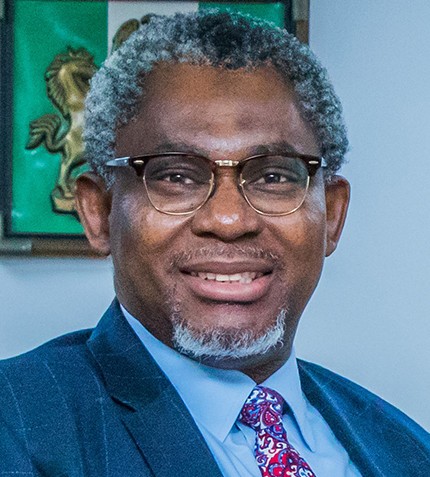The Minister of Mines and Steel Development, Mr Olamilekan Adegbite, has decried the high price of cement in Nigeria, saying it leads to quackery and building collapse.
Adegbite made the assertion at the second edition of Lafarge Africa Plc Quarterly webinar – Concrete Ideas. It is a platform for deliberation of issues, policies and developments shaping Nigeria’s construction, infrastructure and housing sectors. Theme of the webinar was: “Addressing the Root Cause of Building Collapse in Nigeria.”

The minister, who spoke as the Special Guest of Honour, called on the manufacturers to bring down the price of cement in order to reduce incessant cases of building collapse and quackery. Adegbite, wondering on what drives the price of cement in the country, said that it was sourced locally. “What is driving the price? As dollar moves, cement price moves; it’s sourced locally,” he said.
The minister, however, identified negligence as the major cause of building collapse in the country. He said that the Federal Government, through its housing programme, would provide 1.5 million homes to Nigerians to forestall tragedy of building collapse that often leads to loss of lives and property. Adegbite said that poor concrete mix ratio, inadequate structural analysis, as well as inadequate supervision by professionals also contributed to building collapse menace. He stressed the need for training and retraining of people to address the problem of building collapse. The minister said that there should be standard of procurement for artisans to practice in the industry.
Mr Joseph Makoju, Chairman, Nigerian Cement Association, said that building collapse increased by 77 per cent from 2010 to 2020. He explained that Nigeria needs to ensure proper monitoring system to reduce the figure in the current decade. He said that the association was committed to zero tolerance and would continue to work with the government to ensure safety. “We collaborate to ensure that products pushed out to the markets meet the required standard through technical sales marketing. We have to follow through on products, even after sales, down to the end user,” he said.
In his remarks, Mr Farouk Salim, the Director-General, Standards Organisation of Nigeria (SON), called on the state and local governments to ensure proper supervision of buildings. Salim said that people should be punished when they violated the rules to tackle corruption. He said that 85 per cent of substandard goods in the country come through the ports. “SON is doing its best with the resources available to ensure standards,” Salim said.
He said that the organisation was kicked out of the ports 10 years ago because of ease of doing business which was against SON Act of 2015. “We are working with the relevant authority on getting back to the ports,” Salim said.
Earlier, Mr Adebode Adefioye, Chairman, Lafarge Africa, said the company would continue to provide a platform for public disclosure that would address the development needs of the country. Adefioye said that the country recently trained 5,000 artisans to enhance their building skills in line with the global best practice.


